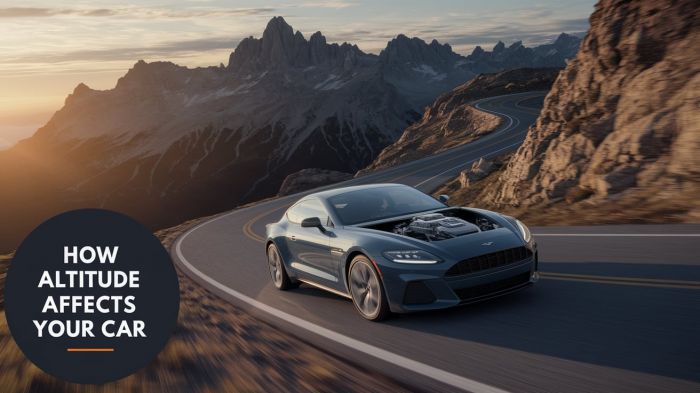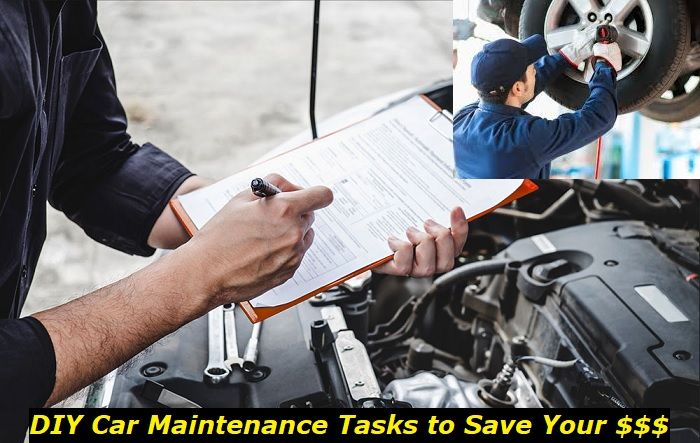If you are really into hybrid vehicles but need a reliable and good truck, your eye may be caught by the Ford F-150. Among all the types of engines it offers to buyers, there is the PowerBoost version which is essentially the EcoBoost engine with an additional electric motor and battery. It doesn't seem like a bad choice given the more or less affordable price and a lot of perks you get with the electric technology onboard.
Today, we'll tell you more about the 3.5L V6 Hybrid powertrain in the Ford F-150 and will discover some of its common problems you should pay attention to. Before paying your money for this vehicle, you should know some things that may be crucial in making your decision. We'll try to cover it without including a lot of our personal considerations about this engine so that you can make your conclusions.
.jpg)
Key features and my opinion about the engine
- Production years:2021-now
- Average lifespan of 3.5L V6 PowerBoost:200,000-240,000 miles
- Fuel supply type:direct injection
- Power range:430 hp
- Fuel efficiency:good
- Engine block material:aluminum
- Engine reliability score:medium
- The most common problems:oil leaks, turbocharger failure, overheating, spark plugs and ignition coils failure.
Key facts about the 3.5L hybrid engine in the Ford F-150
Ford decided to keep up with the tendency of electrification and presented its hybrid F-150 with some crucial improvements for the 2021 model. It's still available in showrooms and you can buy it by paying only about $3,000 more than for the non-hybrid option. But you will get quite a few advantages, so this overpayment will give you a much better vehicle.
The 3.5L hybrid powertrain is based on the 3.5L EcoBoost turbocharged engine and an additional electric motor (BorgWarner). Then there is also the battery to power the electric motor. The powerplant is not bad in terms of towing capacity and overall torque thanks to the combination of two different machines.
Here are some key facts you should consider:
- the overall power is 430 hp and the toque is 570 lb-ft, it's much better than of the non-hybrid EcoBoost version;
- the electric motor provides the vehicle with 47 hp of power and relies on the 1.5-kW battery placed under the bed;
- the battery has also two or four (depending on the package) 120V power outlets for charging or powering different devices (up to 7.2 kW);
- the vehicle can tow up to 12,700 pounds and has a claimed payload of 2.120 pounds which is not bad at all for the full-size truck;
- the 0-60 mph acceleration takes about 5.4 seconds which makes this truck a good competitor on the racing track;
- the average gas mileage proves to be about 25.5 MPG which is not that great for a hybrid but perfect for a truck;
- the engine is paired with the 10-speed automatic transmission - a reliable and durable option for such a truck.
Don't forget that this engine wasn't engineered for fuel economy. The electric motor and the battery were added here to improve the specs of the truck and to follow the trend of electrification. But you can see that the 3.5L V6 EcoBoost gets on average about 20 MPG while the hybrid allows you to hope for 25 MPG or so. It's not a big gain but it's still better than the F-150 truck with no electric motor in it.
We should say that Ford did a wise thing when they introduced the 3.5L V6 EcoBoost as the heart of their hybrid system for the F-150 truck. We all know this engine for being super reliable and so people aren't afraid to buy the truck even though they still don't feel that hybrid powerplants are reliable enough for buying a truck powered with them.
What about the longevity of the 3.5L V6 Hybrid in the F-150?
When it comes to durability, Ford engines can seem better than many of their counterparts. Of course, they still have some issues and are not ideal but they are durable, especially when we take V6 and big-displacement engines. The 3.5L V6 EcoBoost is not problem-free but it can go up to 200,000 miles with no major issues and expensive repairs.
But hybrids don't usually die because of gasoline engine problems. These powerplants die because of other issues. The electric motor can last forever, so it won't influence the powerplant's longevity. But the battery pack is not eternal. Batteries in your Ford F-150 are going to live from 80,000 to 120,000 miles or less depending on the type of use.
If you boil your electric kettle or power your country house with the help of power sockets in your truck, the battery will deteriorate much faster. If you just drive the truck and never load it too much, it can live longer.
The F-150 hybrid powerplant will also have some specific issues that can shorten its lifespan significantly. We believe, the vehicle will be OK for about 150K miles. Yes, it's a little worse than if you would buy a simple 3.5L V6 EcoBoost version but still, the durability is not bad for a hybrid truck.
Also, if you invest in battery replacement at about 100K miles, the truck may go up to 200,000 miles without causing too many problems for you.
What are the common issues with the 3.5L Hybrid engine in the F-150?
Some common problems if the 3.5L V6 EcoBoost engine will be there, of course. But some other issues with the electric powertrain will also join them. You will have a cocktail of both minor and major issues that are sometimes pretty expensive to repair.
We've seen the reports by different car owners and spoken to Ford mechanics. Now, we are ready to list the most common issues that will most likely happen with your F-150 3.5L Hybrid engine.
Here they are:
1. Chain and phasers failure
The most common problems with the gasoline part of this powerplant are the timing chain and failing phasers. This may easily bring this engine to death. The timing chain is meant to live as long as the engine, but in reality, it may fail somewhere around 100K miles. We recommend replacing it before it fails - it's much cheaper. Just listen to a minor rattling sound or plan to replace the chain at 90,000 miles or earlier.
Also, this engine may develop carbon buildup because of the direct injection. Its injection system is not very reliable and may fail to require expensive repair.
2. Hybrid battery issues
If you use the battery to power some electric appliances, you may drain all its juice and greatly reduce its lifespan. Also, specific driving styles may kill the battery much faster than you may think. If you drive on highways though, the battery will live longer because it doesn't take part in this type of driving.
If the battery fails, it will be quite expensive to repair the vehicle. The price of the OEM battery pack is huge and we don't see any alternatives on the market.
3. Wiring and electronics problems
In some ratings, the F-150 proved to be one of the least reliable hybrid trucks on the market. And while we still don't agree with this, the facts are strong. Electronics is one of the issues. We've seen many reports about the wiring and electronics problems with the new F-150 hybrid truck and this is awful.
If you have one of those problems, repairing and even locating them is a horror for any mechanic. Unfortunately, this may make anyone think twice before signing any deals with a Ford dealer.
4. Vibration and loud work issues
When the 3.5L V6 EcoBoost starts charging the battery, it works like the cheapest power generator on the market. It sounds hell loud and also vibrates as if it was engineered in the 1950s. This will happen when you drive or when the vehicle is idling. And when this happens for the first time, you may be shocked.
This is not a problem, but rather a peculiarity of the vehicle. But still, we couldn't include this feature in our problem list.
What should you do to prolong the lifespan of your F-150 Hybrid engine?
When you own such a vehicle, you will obviously need to know a couple of things about how to maintain it. First of all, all the recommendations for a pure gas version are true for the hybrid powerplant. Change oil and filters regularly, watch the timing chain, and don't ignore the symptoms of small issues.
But you should also care about the electric system. Never risk imposing your vehicle to water damage. Remember that the battery is under the bed of the truck - any physical damage will mean loads of problems. Never let anyone inexperienced maintain or repair your F-150 Hybrid. Otherwise, you will pay a load of money to put it back on the road after that.
Also, make sure you replace the timing chain roughly every 90,000 miles and the battery pack at 100,000 miles or a little later when it's almost dead.
About the authors
The CarAraC research team is composed of seasoned auto mechanics and automotive industry professionals, including individuals with advanced degrees and certifications in their field. Our team members boast prestigious credentials, reflecting their extensive knowledge and skills. These qualifications include: IMI: Institute of the Motor Industry, ASE-Certified Master Automobile Technicians; Coventry University, Graduate of MA in Automotive Journalism; Politecnico di Torino, Italy, MS Automotive Engineering; Ss. Cyril and Methodius University in Skopje, Mechanical University in Skopje; TOC Automotive College; DHA Suffa University, Department of Mechanical Engineering






Add comment